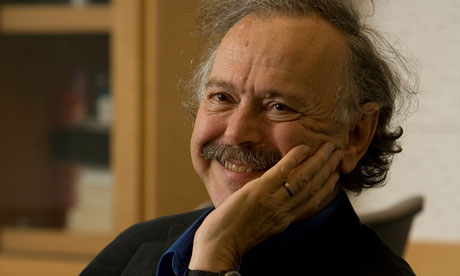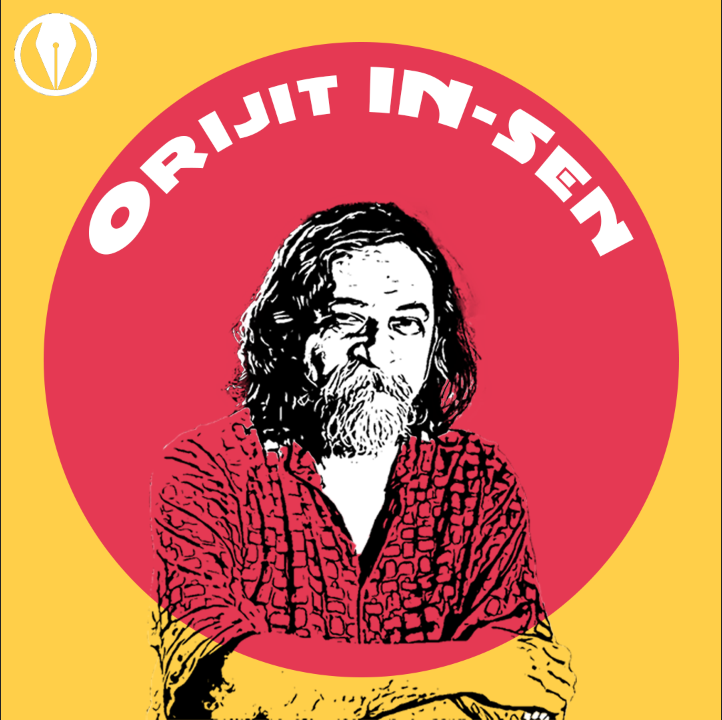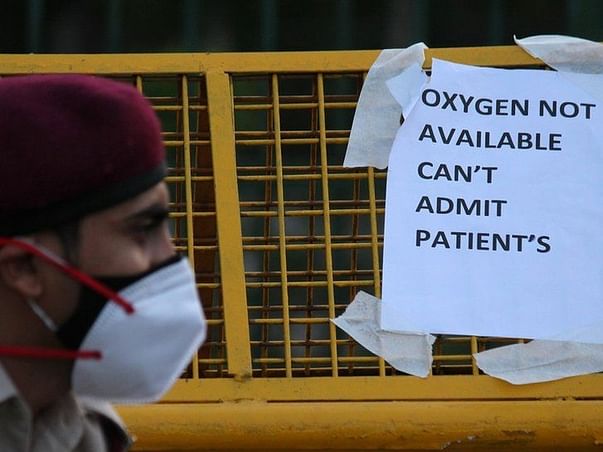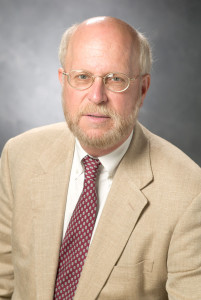One cannot help but be impressed when they hear about Dr. Richard Muller – particle physicist, Earth scientist, professor emeritus, mentor to a Nobel prize winner, climate change skeptic, global warming activist, entrepreneur, consultant, writer, avid blogger, hiking enthusiast and a racquetball player. Naturally, we at Vox Populi were eager to find out – what exactly makes this man tick? Our conversation with him covered a variety of topics, from the Indian research environment, the ideal work-life balance, to Trump’s policies on the world energy crisis and climate change.
An Indian PhD Student
Having interacted with the Indian professors and students at IIT Delhi, NIT Trichy and IIT Kanpur, Dr. Muller feels that the primary difference between the research scene in India and the USA is that there is a much greater focus on the engineering aspects, as compared to fundamental science in India. This in turn means that the Indian students have a more analytical approach to science, with a greater emphasis on problem solving. Seeing it as a conscious decision taken by the country, he feels that it is paying off really well, and reflects directly in the choices made by the Indian students who go abroad for further studies, with a considerably higher number of them going for PhDs in applied sciences. Ultimately, however, he feels that there is really no difference between the students from India, and those from the USA. “The fundamental love for science, which is present everywhere, unites people across nationalities, backgrounds and areas of specialization”, he says, “the similarities are much greater than differences. It is part of what makes science so beautiful – it is universal across all cultures.”
Perspective on the Education System
Having served as the Chairman of the admissions committee for graduate students multiple times, Muller has always emphasized on admitting students with a broad background. He says, “A well-rounded education is fundamental for a graduate student, as opposed to proficiency in just Math and Science. The student must be good at writing, speaking, basically, anything that shows the ability to express oneself. These qualities are essential for a fundamental physicist, in my opinion. When you are trying to do something different or contradictory than what has been done before, you need to be able to convince others about your ideas. While getting the right answer and discovering surprising things is great, it may not always be enough.” This is something that he feels tends to be under emphasized in the Indian curriculum. He goes on to say, “The admissions committee is always looking for people with an experience of doing things. Students who just like to think and live out of the laboratory, we don’t accept too many of those people.” He feels strongly that the importance of experimental work should never be disregarded. “The people who truly love their subject, and discover important things, are the kind that like to do things with their hands, the people who know how difficult it really is to build something and make it work. And some people don’t like that, they aren’t comfortable in the lab. If you just want to do abstract theory, then we aren’t too interested. Theory is what you do as an undergraduate. Most of the important things come from people who work with their hands.
Focus
Muller says, “I believe early focus is a mistake. You can imagine an athlete who focuses completely on running a 100m track. Even if he devotes all of his time to practicing, odds are, he’s not going to win the Olympics, or maybe even the track meet. But afterwards, when he doesn’t win, he’s not left good at anything else.” He goes on to say that a challenge that we all face here, at the IITs, is having to decide early what we are going to do, which can often be harmful. He is of the opinion that we should get to study a broad range of engineering subjects, and only after we are familiar with a lot should we specialize. This way, we’ll be able to bring in ideas from one discipline to solve problems in another, enabling us to contribute more to the subject. “Early focus may help you get your first job, and that’s why there is a lot of pressure. However, if students get a broad education, they can go much further in the end. But you don’t have that option.” Dr. Muller believes that diversifying interests is important not just in academics, but also in life in general. He says that activities like hiking, which he is a great fan of, help him achieve a spiritual peace, a peace which gives him the drive to approach his projects with renewed vigour and enthusiasm. “For every hour that I hike, I gain two hours of research…I hike at least twice a week. I think I get more done because of it.” He believes taking care of one’s body is just as important, which he does through regular sessions of racquetball. He says the mind cannot do much if one’s body is not well-taken care of, for they are ultimately parts of the same whole. And the best way to take care of one’s body, he feels, is through sports – where a healthy competition makes you enjoy exercise so much, you don’t even realize you’re doing it.
Quora
“I believe that a fundamental instinct in all humans is not just to have children, but to teach and raise them. When you nurture a child and see it grow into a productive human being, it gives you enormous pleasure. This is the kind of joy that you get out of teaching. If you’re truly devoted to it and care about your students, you can see when they’ve learnt something – their faces light up, it’s a wonderful experience. I’m not teaching anymore, and I think Quora has substituted that experience for me. When I give a piece of advice on Quora, and people write back with their appreciation, it makes me feel really good inside. In a way, it’s a spiritual experience, to have helped somebody – and to me, that truly is one of the most rewarding things one can do in his life.”
Popularising Physics
On asking him on how he feels about popularising physics through Quora, he says, “It’s the scientist’s duty to popularize science amongst the public. After all, they’re the ones who are paying for his research. So he has a responsibility to make them understand what he’s doing. It is not enough to say that he will make discoveries which will make their lives better, and thus pay his debt. I firmly believe that to popularize physics, what all physicists need to do is convey why they enjoy it so much. I think most people do find physics interesting, they’re just intimidated by not being able to understand it. But that’s where the physicist comes in – it is part of his duty to help them understand.”
Dichotomy between Career and Personal Life
A common cause of concern for almost all of us, Dr. Muller says that there shouldn’t be a choice at all between career and life. He says, “Life isn’t easy, but extreme specialisation is not the solution to it. You may think you’ll be better off by specialising only in your career completely, but that is not true. The most successful and the most productive scientists are those which have a happy family life.” Speaking about his experience, he says that as many as 30 people have worked under him and he has always made the effort to ensure all of them have a happy family life. “If they’re sacrificing their family life for their career, their career isn’t going to go very far. You have to balance them. It’s bad to focus on one or the other. It is difficult, but it can and must be done.”
Trump’s Policies on Renewable Energy Sources and Global Warming
Dr. Muller is known for his unconventional stances on climate change and global warming. He is of the firm opinion that renewable energy sources are not the solution to global warming. Hence, even if Trump’s policies sideline them, it may not matter after all. “What matters is the stress that he claims he will give to nuclear energy and natural gas.” He finds it misguided and misinformed to say renewables can solve the problem of global warming. They are too costly and inefficient and will not develop fast enough to reach the level where they can counter the effects of global warming. He finds it highly ironic that although Trump does not believe in global warming, his policies could do much more to mitigate and slow down the effects of global warming than Obama’s policies ever would and ever did. “Though Obama is a strong believer in global warming, his plans would have only encouraged China’s reckless and unsustainable growth. His plans had no slowdown proposed till 2030, until when it would have been too late. But Trump’s policies will effect a slowdown, which will provide the world with some breathing room to come up with a solution to the problem.”
Combating Global Warming at Berkeley Earth
Dr. Muller and his daughter have been trying out “the engineering approach” (rather than trying to target countries and assign blame) to find a solution to global warming, without placing specific burdens on any country, at Berkeley Earth. “Global warming is real. CO2 emissions are increasing, but from where? – China, India and developing world. The solution to this cannot be to ignore these countries and focus on reducing your own carbon footprint. Developing nations will develop and generate CO2 in the process. So a solution must be found which will allow these countries to develop in a sustainable way, while reducing the emission of air pollutants and other causes of global warming.” In his opinion, three things that he considers necessary for combating global warming include
- Energy conservation: He says that humans could be using half of the resources that we use today (coal, natural gas etc) and still have the same standard of living, and this would not mean slowing the growth of the developing world, or asking them to compromise on their standard of living. With regard to India, he notes, “It is delightful to see how India has progressed. There are so many fewer beggars on the streets. We have more beggars in Berkeley than you have here in India!”
- Nuclear power: “Nuclear power is completely safe! And the world needs to be convinced of that! It is the duty of technical students to understand it, and explain it to everyone else that nuclear power is essential for slowing down global warming.”
- Natural gas: “We do not want to set up more coal mines and coal power plants as they cause huge amounts of air pollution. It is essential to shift to natural gas. New technologies are being developed across the world for its efficient extraction and utilisation and these need to implemented as soon as possible in India, a country with large reserves of natural gas.”
He finds solar energy to be an overly hyped concept. Statistically, solar energy meets 0.04% of India’s total energy consumption, and 0.06% of China’s. He says, “To believe in solar is idealistic. As scientists and engineers, we cannot afford to be idealists. Look at China for example. China has been heavily subsidizing companies that are going into solar power, but these are going to go bankrupt as soon as the subsidies are removed.”
With this, our twenty-five minutes with this extraordinary gentleman who inspires generations with his witty and heartfelt observations came to an end. Even with his parting words, he impressed us with his intelligence, sincerity and thoughtfulness. In this short span itself, he managed to infect us with an irrepressible energy, and we came to understand how this man manages to achieve success in such a wide variety of fields. His ideas made us question the very stereotypes and assumptions we base our lives around. It felt refreshing to come across a broader outlook and realise how someone who’s determined to live their life with energy, love and passion for himself, can. We hope our readers found this interaction as stimulating and inspiring as we did.
Written by Shashank Gupta, Shruti Joshi












